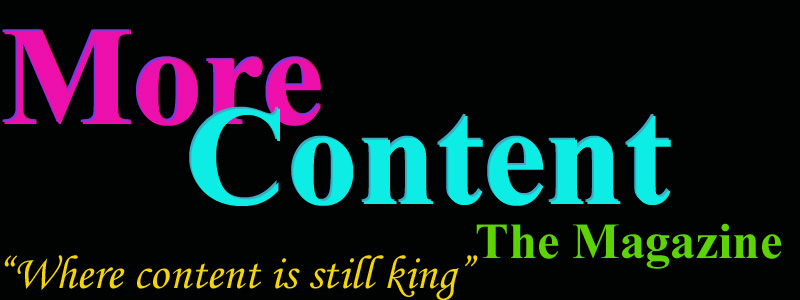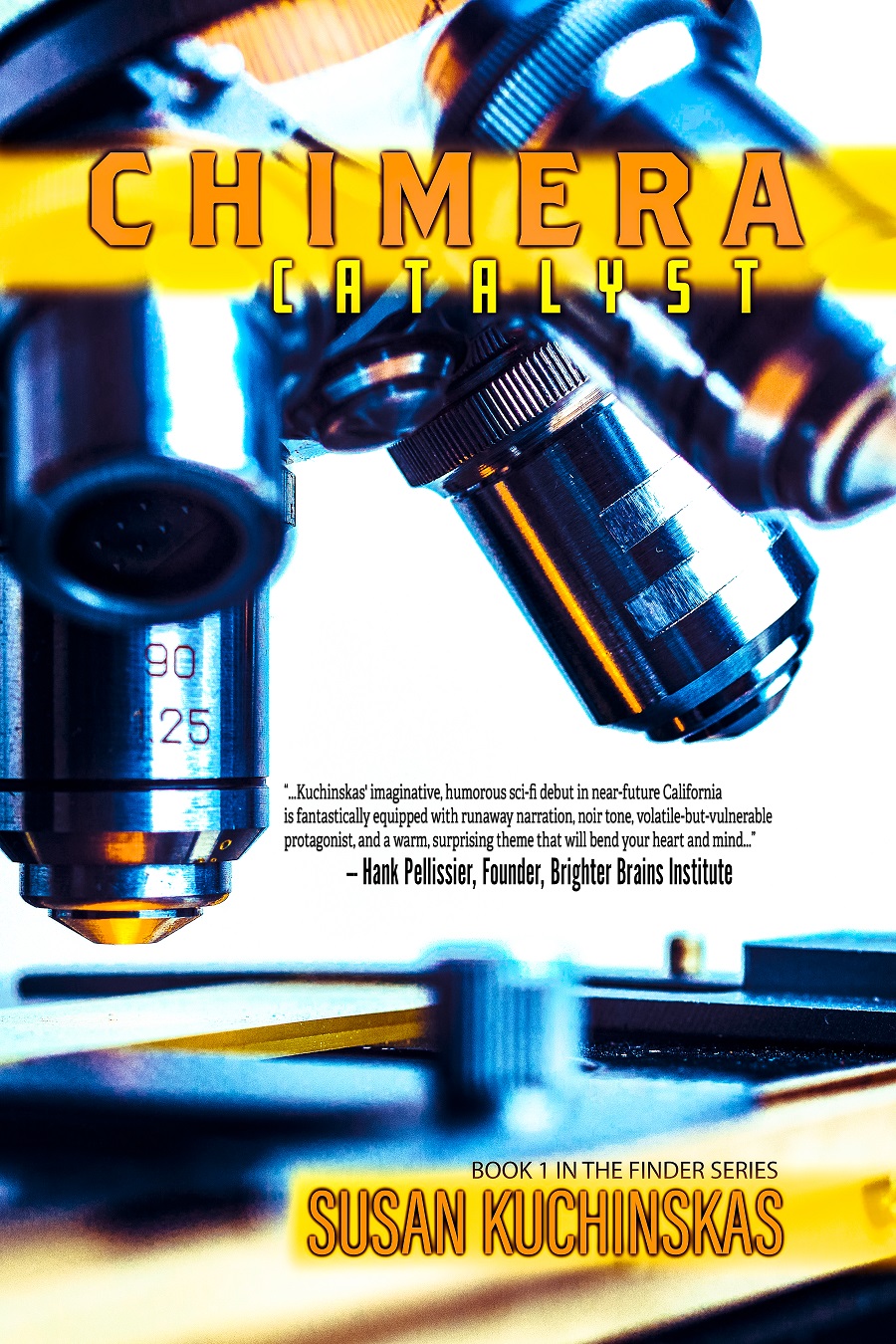 Back to More Content Magazine
Back to More Content Magazine

Her new sci-fi detective novel Chimera Catalyst was born from her fascination with genetic engineering and the many ethical, legal, safety and security issues raised by the sudden growth of this technology. Chimera Catalyst places us in a world where genetic engineering is commonplace, at least for those who can afford it.
The initial reviews have been impressive:
“The story is reminiscent of Lethem's GUN WITH OCCASIONAL MUSIC, and fans of gritty, noir sci-fi will absolutely love it. “ Brian Cohn, author of The Last Detective
“ ..it felt a little like a futuristic Magnum PI in all the right ways as Finder embarks on a quest for the troubled girl, checking in with some contacts on the shady side of the law.” Christopher Schmitz, Inside the Inkwell
“A science fiction noir for the 21st century in this crisp thriller about the corporate exploitation in the golden age of DNA manipulation and cloning.” Laura Ellen Scott, author of The Mean Bone in Her Body
We visited Kuchinskas in her workshop, a rustic shack that functions as a science lab, art studio, woodshop and office. Shockingly beautiful, intelligent and eerily calm, she generously halted her work to speak with More Content Magazine.
What inspired you to write this book?
It started with a dream: In my dream, I had a small dog. It was white, like my first dog, but it had a streak of blue down its back. It was an obstreperous little thing, and I was having trouble making the dog behave in public. Soon after that, I took a writing workshop in which one of the prompts was to choose a Tarot card. The card I picked was in the suit of Wands, depicting an arm holding a staff that sprouted leaves. What I wrote for that prompt became the beginning of Chimera Catalyst. That beginning may seem overly poetic and confusing to some people; my editor would rather I’d omitted it. But I was very fond of it and wanted it to stay.
How does your journalism work impact your fiction writing?
I’ve covered internet technology since it was invented, and that includes the weird world of startups. I built the future world of my book by extrapolating from the technology and also the cultural trends of today. Probably the biggest influence on the content of the book is my annoyance at the arrogance of so many startup founders.
How and when did you get interested in writing?
I was one of those kids who’d go to her room and write. I wrote a play when I was in seventh grade. But my family was lower middle-class; my parents were the first of their generation to go to college. And we were living in the Midwest. So there were no role models for me in terms of having a career in cultural production. And my parents had very low aspirations for me. My dad advised me to get a civil service job because it was secure. My mother thought I should be a teacher because I liked to read. I never realized that I could get paid or make a career from writing. It wasn’t until I got a temp secretary job in a public relations department that I started to meet editors and journalists and realized that I could do that, too.
What and who are you major influences as a fiction writer?
The writers I love are, for the most part, not the writers I write like: a wide range that includes Thomas Hardy, Charlie Huston and Charles Dickens. But in writing Chimera Catalyst, I aspired to get a small bit of the flavor of Raymond Chandler, who is indeed one of my favorite writers. I wanted to get the sense of place and time that’s so wonderful in his books.
What do you hope people will get out of the book besides entertainment?
The world of genetically engineered organisms is already here, and scientists already have combined human and animal cells. I hope readers will begin to think about what that will be like and what it will mean.
Tell us about your plans for more fiction, will there be another Finder book?
Yes, I’m in the early stages of the second Finder book. It includes a plot to re-engineer the human mind by changing our microbiomes. If all goes well, it will be released early in 2019, also from Pandamoon Publishing.
Chimera Catalyst: Book One of the Finder Series is available through Amazon and Barnes & Noble and other sellers in Kindle and paperback versions.
ReMe: the future of personal cloning. Available now for select clients.
![]() Back to Oranj Productions Home
Page
Back to Oranj Productions Home
Page
Contact Info
All content Copyright 1993-2017 Oranj Productions.
All Rights Reserved.